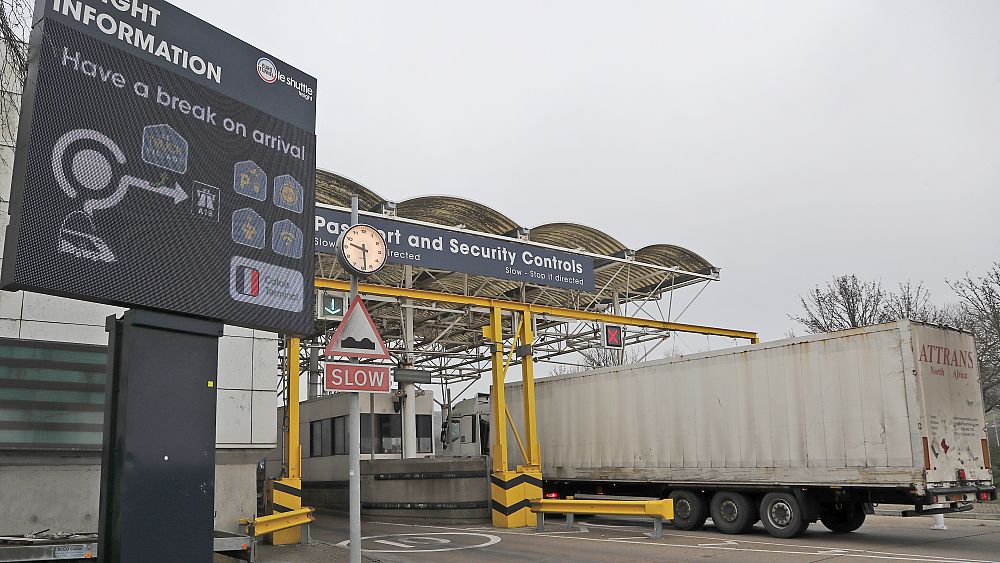
Fiona Navin-Jones spent the 24 hours before her trip home fretting. Would she make it, or would she have to leave her family behind?
Navin-Jones, her husband, their three young children and dog had spent their Christmas holiday near London with family, a celebration they missed last year due to the Covid-19 pandemic.
They were supposed to leave England for their home in Belgium on Thursday. But the day before their scheduled departure, Navin-Jones came upon an “urgent update” on the Eurotunnel’s Twitter account informing customers that British citizens who are not French residents could not travel through France by road to reach their country of residence in the European Union.
“It was just so bizarre,” Navin-Jones told Euronews. “We were really respectful of the rules. But we would never have traveled had this rule been clear before.”
British nationals like Navin-Jones who live in the EU and traveled to the United Kingdom for the holidays are now scrambling to make alternate arrangements. Many are voicing frustration on social media over what appears to be a bungled announcement of the new rule. It is unclear who is exempt from it and when it came into effect, but it appears nationals of other EU countries are allowed to cross the border into France to return home.
Eurotunnel said its announcement was prompted by a French government decision on Tuesday, while the British Embassy in Paris confirmed the news in a tweet Thursday. British citizens can still commute through France as long as they travel by air.
France has not publicly commented on the new rules, and an email from Euronews to the French Interior Ministry went unanswered.
The British Embassies in Belgium and the Netherlands both said Wednesday they were “urgently seeking clarifications” from the French government, which a spokesman UK Foreign and Commonwealth Office reiterated to Euronews on Thursday.
The French government earlier this month banned most travel to and from the UK due to the rising number of coronavirus cases in both countries. Under those tightened guidelines, the French authorities said EU nationals were allowed to bring their spouses and children through France to commute to another country, regardless of their nationality.
Since then case numbers have skyrocketed in France. Health authorities said on Wednesday that more than 200,000 cases were reported in just 24 hours.
‘We really just went with our fingers crossed’
Once they heard the news, Navin-Jones and her family assumed that she would be denied entry into the Eurotunnel because she does not have a European passport, unlike her husband and three children. But on Thursday morning, Navin-Jones and her husband decided to the family would all drive down to the tunnel entrance at Folkstone to see if she would be let on. If not, Navin-Jones would go back to London and take the Eurostar train directly to Brussels.
“We really went just with our fingers crossed that I would get on,” she said.
As they approached the queue, her husband told the kids to speak French, not English, just in case it helped their case. Then a car with a Dutch license plate in front of them was denied entry.
“Everybody was nervous,” she said. “We were all we were 100% prepared for me to be kicked out.”
Navin-Jones got out of her car and headed to the terminal, which she had to do to bring the dog across the border. She asked an employee if she’d be let across, and said it depended on whoever they dealt with at passport control.
“How can it be that inconsistent? How can it be down to the mood of the person in the booth? They’re kind of interpreting as they go because there’s not a clear rule,” she said.
Navin-Jones was allowed to cross. She spoke to Euronews just as she left the tunnel, relieved to be en route back to Belgium.
“I completely understand stopping tourism,” Navin-Jones said. “But I’m not a tourist, I’m trying to get home to a country I’ve lived in for 14 years, and it just feels incredibly hostile, this decision.”